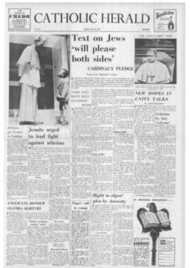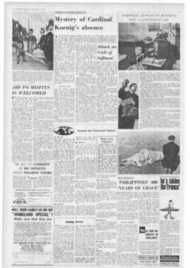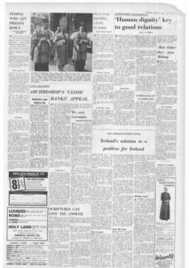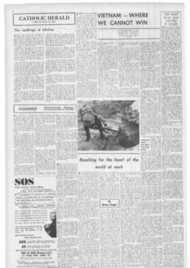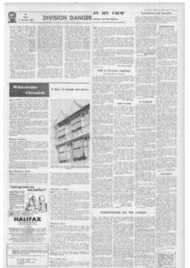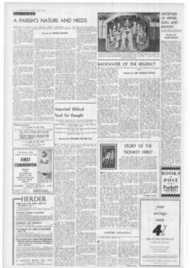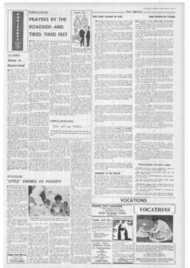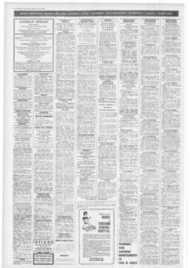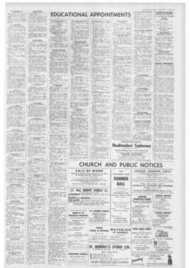Page 7, 14th May 1965
Page 7

Report an error
Noticed an error on this page?If you've noticed an error in this article please click here to report it.
Tags
Share
Related articles
Cardinal Called To Act As Witness In Trial Dies At 88
Philadelphia Cardinal Retires
Racial Tensions Tackled
Us Crusaders March To Protest Abortion
News In Brief
American Editor Mini-catechism For Vatican Paper To Be...
CARDINAL BEVILACQUA
"Just call me Father . . ."
"POPE PAUL has heard my plea to remain here with you as your priest until the end. That should not be very far off now."
CARDINAL GIULIO BEVILACQUA said this to his parishioners in a poor part of Brescia, North Italy, last February, when he was named one of 27 new cardinals (writes Alan McElwain). His prediction was soon fulfilled. The end came for the "cardinal in black" last Thursday — less than four months after his election to the Sacred College by the Pope who, throughout his life, had known and loved him. The late Pope John had tried unsuccessluly to persuade Fr. Bevilacqua to become a cardinal. Pope Paul is said to have found him a little difficult, too, but in the end the old man good-naturedlye gave in. After all, he had knon Pope Paul since 1908—and Giovanni Battista Montini, born in Brescia on September 26, 1897,
had also been one of his pupils in the seminary there.
The Pope, however, heeded the old man's desire to "remain a parish priest until I die". Instead of offering him, as he would normally have done, a job in the Vatican, with an apartment and secretaries, he granted him the unprecedented privilege of remaining at Brescia's Church of St. Anthony, where he had been sines 1952. "Just go on calling me Father", he told his parishioners. "Don't am old to he you think I o e
called that?" So Fr. Giulio. he
m ever remained to all, and if he was er addressed as "Your Eminence" it %%NS certainly not by any of his own people. He also continued to wear his simple black soutane and to live, in poverty, in his old, unheated house. Until the end, he also followed his old, severe routine —Mass at 4 a.m., attention to parish business until II o'clock each night. In the First World War, Fr. served w Bevilacqua seith an Italian Alpine regiment until he was taken prisoner by
pr the Austrians in 1917. a
In prison camp, he wrote his first book Light in lire Darkness. He was twice decorated for bravery. In the Second World naval chaplain. War, he was a naplain. He was decorated a third time, for bravery when a hospital ship in which he was serving was torpedoed. During the Mussolini regime. l'r. Bevilacqua was an active outspoken opponent of Fascism. To Pope Paul, Fr. Bevilacqua was not only a devoted friend, but his confessor ands piritual adviser, too. One ofthefirst private audiences the Pope granted atfer his election in 1963 was to the old priest, who wondered whether he should continue to address him with the farpiliar "tu" (thou). "Nothing is changed between us", a smiling Pope Paul assured him. Pope Paul chose Fr. BevilaCqua as one of the clergy to accompany him on his historic pilgrimage to the Holy Land in January, 1964. And he was the man with whom the Pope most enjoyed sharing lunch when the priest came to Rome on business,
bishops and distinCardinals,
distinguished Catholic contemporary thinkers all sought Fr. Bevilacqua's advice and drew on his vast knowledge in his humble Brescia parish. Popes Pius XI, Pius XII and John XXIII were among his "clients".
blog comments powered by Disqus


